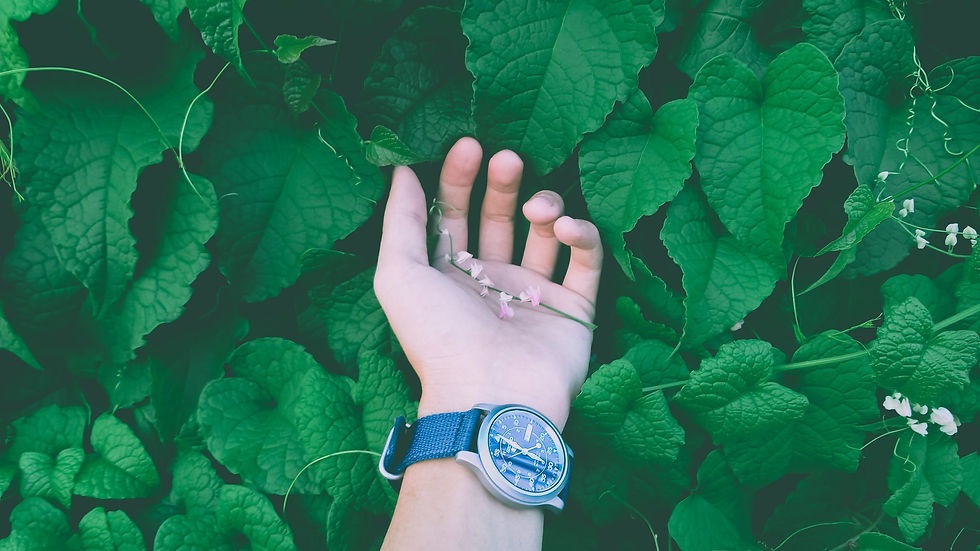My Five Go-To Resources for Mental Health
- Tonya Snodgrass

- Jul 28, 2018
- 3 min read
**Disclaimer** I am not a doctor or a licensed therapist. If you or a loved one you know is struggling with a mental illness, reach out to a medical professional as soon as possible. If you or a loved one is in immediate danger, please call your local emergency services or go to the nearest emergency room. Never be afraid to reach out to the National Suicide Prevention Lifeline (1-800-273-8255). There are plenty of resources available at their website as well.
One of the worst things about mental health is not knowing where to turn. When my parents and I first decided I should see someone, we used my pastor's wife recommendation. We didn't know where else to look. When I began the search for a therapist last year, I called my doctor for recommendations because I no idea where to start. Unfortunately, the clinics my doctor recommended had waiting lists of at least four weeks. And that was just for an initial evaluation. The fact that mental health has such a negative stigma doesn’t help anything either. Knowing that t-shirts reading “I Beat Anorexia” are jokingly worn and off-handed comments like “cut your wrists and cry about it” are made doesn’t help anyone feel enthusiastic about discussing their mental illness. If you are walking through life after a diagnosis or thinking about discussing the possibility of a mental illness with a loved one or your doctor, here are a few resources I have found extremely helpful: Brené Brown (author/research professor at University of Houston) Brown is one of my favorite authors. She has written four books built on her years of studying vulnerability, shame, courage, and empathy. I would recommend Daring Greatly and Rising Strong. While these don’t exactly focus on mental illness, they are very useful for personal growth and reflection. Both books stress learning how to embrace your emotions, your successes, and your failures as part of your story and as ways to grow. I use strategies I’ve discovered in these books almost daily.
Hannahlyze This (podcast) Hannahlyze This is co-hosted by best friends Hannah Hart and Hannah Gleb. In each weekly episode the two Hannahs explore a self-help fad, ranging from the humorous to the more serious side of mental health. One week they talked about video game addiction, and on another episode they discussed the Five Love Languages by Gary Chapman. What I appreciate most about the Hannahs though, is their ability to cover sensitive issues in a real, yet comedic way.
If you want to test out Hannahlyze This, I suggest starting with one of these two episodes:
Bad Therapy? featuring Katie Morton ADHD in Adults featuring Jessica McCabe
Kati Morton (licensed therapist/Youtuber) Kati Morton is a licensed therapist who decided to take what she knows well and share it on the interwebs. Her videos cover just about anything you’d be looking for when it comes to mental health. While helpful, Kati’s videos are never meant to diagnose; her Youtube channel is more about educating and offering resources (warning signs, tips for parents, coping skills and other techniques) for those affected by mental illness. The Mighty (online community) The Mighty is an amazing place of encouragement. The articles are written by various contributors, so many of the authors are regular people who write about their experience with mental health or disabilities. Not only is this a great resource for people diagnosed with mental illness, it’s also beneficial for those who have loved ones with mental illnesses or other disabilities. Headspace or Calm (apps) Battling mental illness is learning to fight against your own mind. You have to learn how to recognize what thoughts are yours and what thoughts are caused by the mental illness. Routine guided meditation is super helpful because it leads you through acknowledging and recognizing your thoughts making it easier to differentiate between those that are caused by the illness.
Another (less intense) Disclaimer These resources do not explore mental health from a Christian worldview. While I have found strategies that point toward healing in these resources, they may not be beneficial to everyone. That said, my faith is planted firm in Who Jesus is, and I often turn to the palms for solace. However, my background has made it difficult for me to trust “Christian” counselors and therapists, so I tend to avoid that realm. If anyone has some resources they would like to recommend, please leave a comment below!








Comments